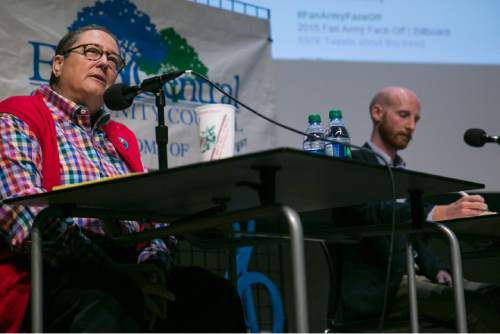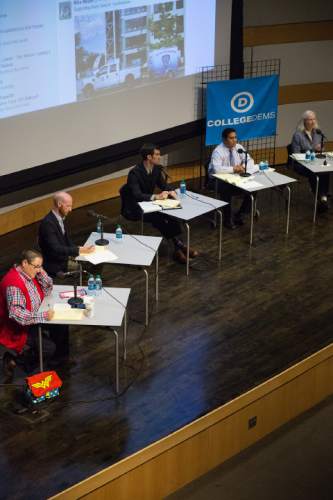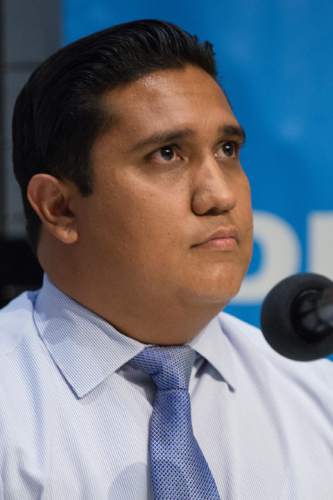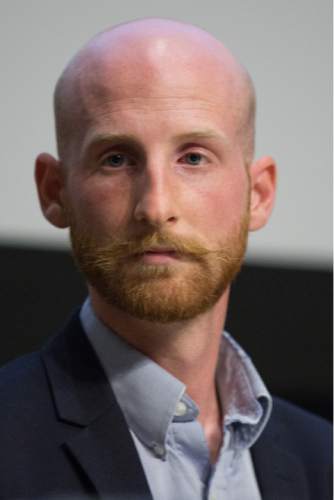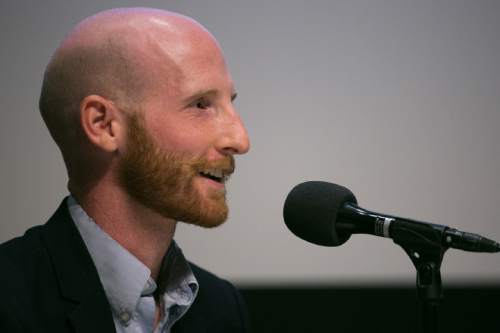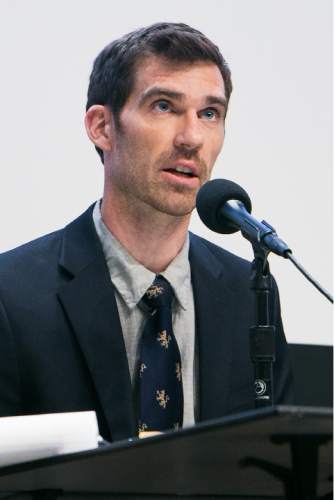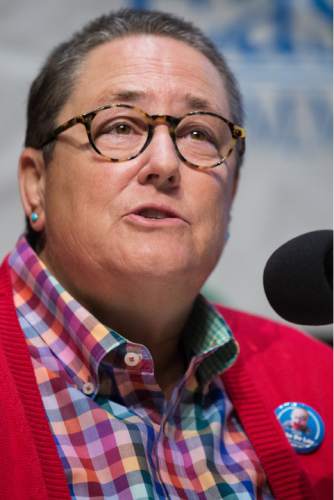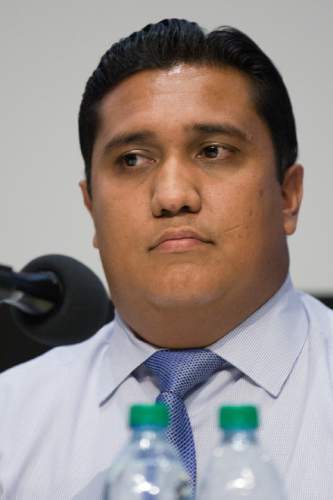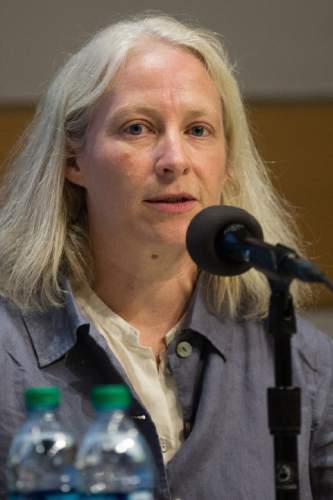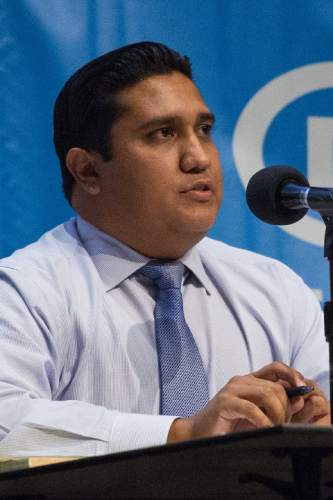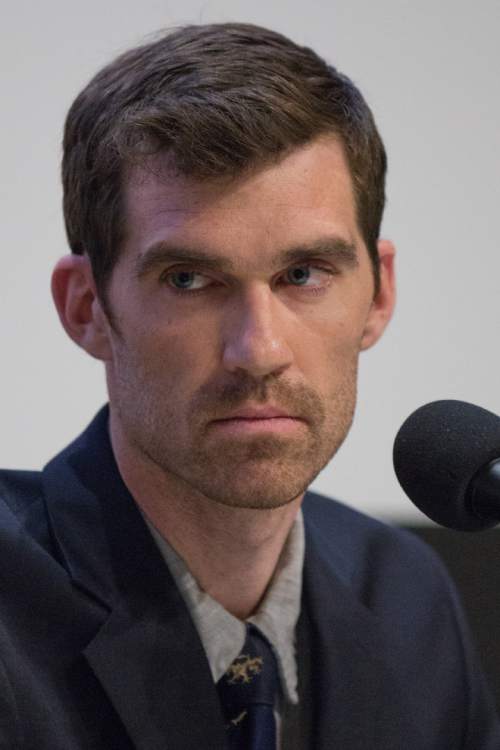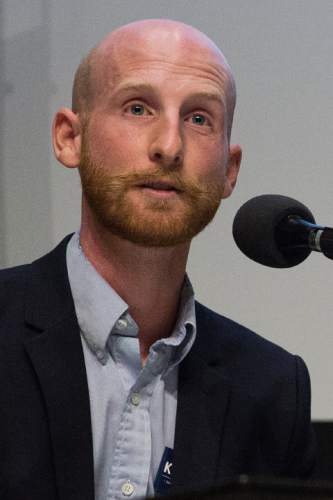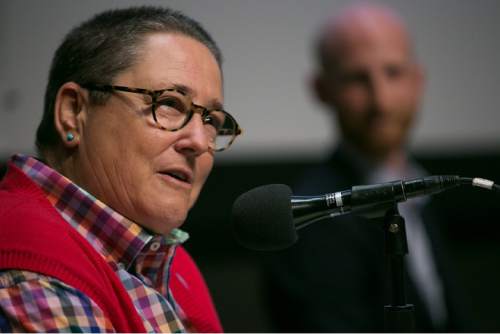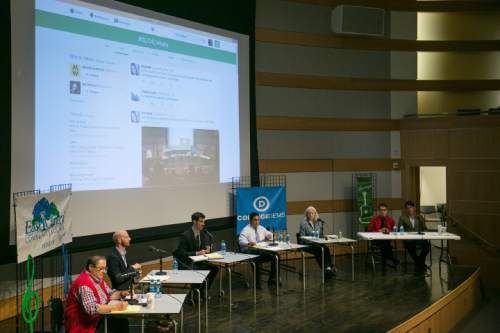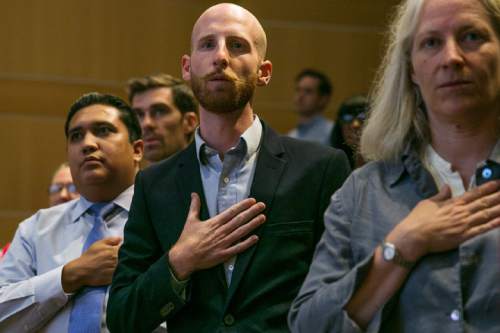This is an archived article that was published on sltrib.com in 2015, and information in the article may be outdated. It is provided only for personal research purposes and may not be reprinted.
Homelessness, affordable housing, transportation and zoning were some of the highlights Thursday evening as five energetic District 4 Salt Lake City Council candidates brought their ideas to bear.
Like many of their fellow Salt Lakers, they wondered why City Hall can't do better at keeping potholes filled and sidewalks straight. They asked why challenges surrounding homelessness have not been met. And they said Salt Lake City needs to find new revenue streams for those things and a multitude of others.
Babs De Lay, Derek Kitchen, Miles Petty, Nate Salazar and Jennifer Colby took turns addressing those questions before more than 100 people at the Salt Lake City Main Library.
District 4 runs from Interstate 15 to the University of Utah and from South Temple to 900 South. District 4 incumbent Councilman Luke Garrott is not seeking re-election to that seat, instead running for city mayor.
De Lay, a Realtor, said the city should begin charging Internet sales tax to meet expenses surrounding infrastructure like roads. And, she added, residents can't take any more increases in property or sales tax.
Further, she hinted that the city should lower its impact fees for high-density apartment projects and streamline the approval process for developers.
She noted that the homeless shelter — and what to do with it — is the biggest issue facing the city. She would make it a top priority, but gave little in the way of specifics.
She wasn't alone on that score. Her opponents didn't offer specifics on homelessness, either, although they all recognized it as a challenge that requires new solutions.
Kitchen, a businessman, said he would prioritize street maintenance and would like to see more grassy medians with trees.
He also noted that the City Council should consider demanding that developers of large housing projects set aside a certain portion of those developments as affordable housing. There's a dearth of at least 8,000 affordable housing units in Salt Lake City, he said.
Growing the tax base with new housing and businesses, Kitchen said, would provide new revenue to meet Salt Lake City's infrastructure needs.
Petty, who owns a pie shop, agreed with Kitchen on "inclusionary zoning" that would make developers build some affordable units in large projects.
He also said that he would emphasize the development of more small neighborhood parks to improve the quality of life for those who can't often trek to Liberty Park, and support what he called "integrated business" in neighborhoods to foster a more walkable city.
Salazar, by contrast, said the city should not force developers into building affordable housing, but should foster low-income housing through financial incentives. Inclusionary zoning, he said, would force developers to charge more for the market-rate units to cover costs of affordable units.
The city should, however, explore raising sales tax, Salazar said, to capture revenue from commuters and visitors who swell the population each day but pay little for needed roads, water and police protection.
Salazar, a community-school director, was the only one in the group to focus on education. He said the city must coordinate with schools to make sure students are getting what they need in order to become good citizens.
Colby, who's worked in areas of sustainability and education, said she would review city ordinances to make sure they are working as intended, particularly where housing density is concerned. Some, she said, are outmoded and not functioning well.
She also would prioritize energy efficiency in buildings as a way to reduce air pollution. Colby added that the city should also focus on renovating existing apartment complexes as a way to meet growth and affordable housing.
All high-density housing, she said, should be coordinated with mass transit.
Further, she said, Salt Lake City, should explore a federal program that pays the state of Utah a fee for federal lands it can't tax. Much of District 4 is made up of government and church property that can't be taxed.
The two top vote-getters from an Aug. 11 primary will advance to the Nov. 3 election.


